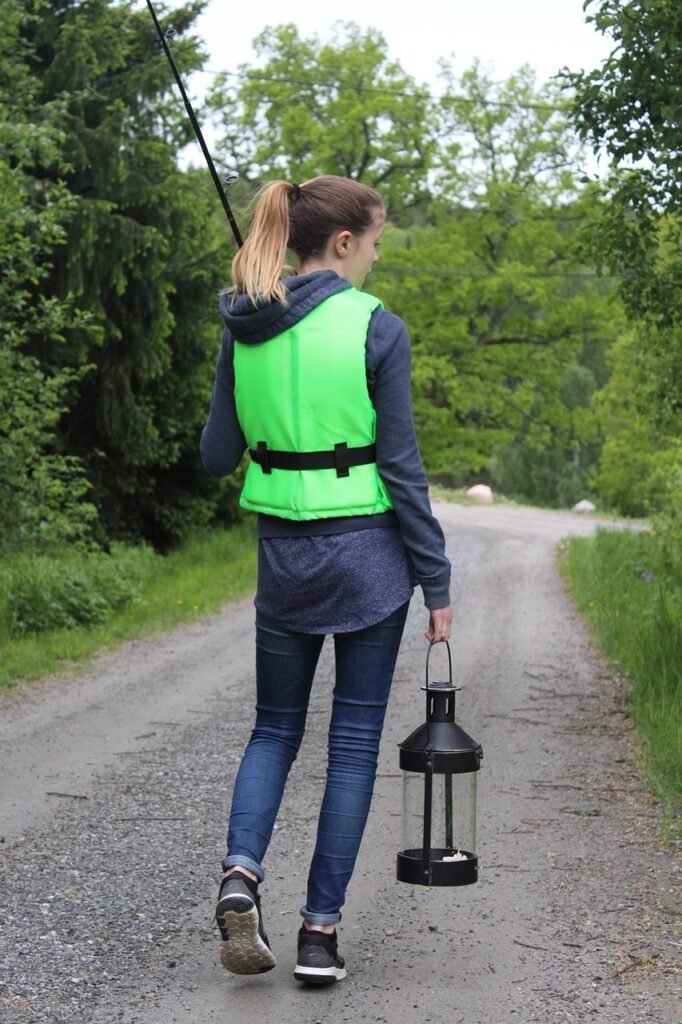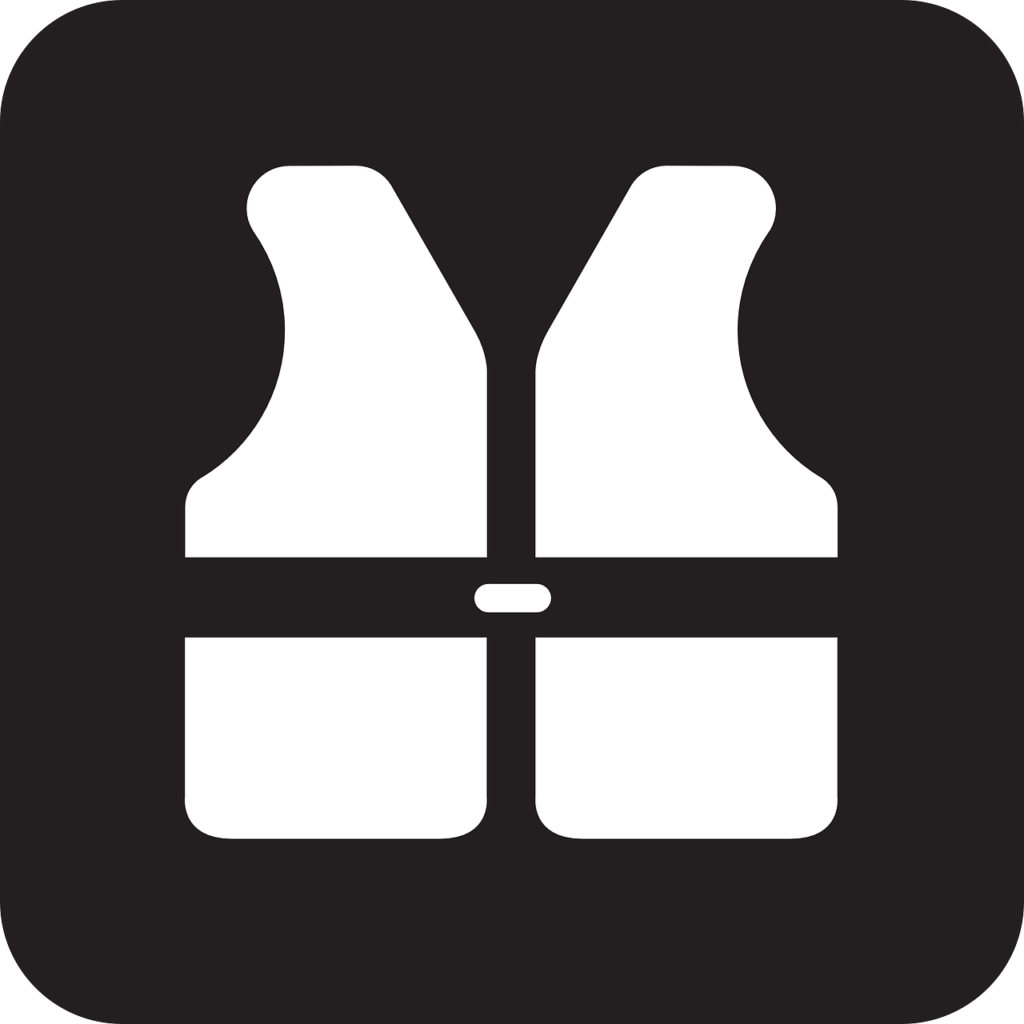Finding the perfect life jacket or personal flotation device (PFD) can be a daunting task for anyone, especially when considering factors such as height. However, fret not, as this article is here to guide you through the process of selecting the ideal life-saving gear that suits your height. With a variety of options available in the market, understanding how to choose the right life jacket specific to your height will ensure your safety and enjoyment during water-related activities. So, let’s dive into the world of life jackets and PFDs, and discover the best fit for you! Choosing the right life jacket or personal flotation device (PFD) is essential for your safety when participating in water activities. There are various types and factors to consider when selecting a life jacket. In this article, we will explore the different types of life jackets, such as offshore life jackets, near-shore life jackets, flotation aids, throwable devices, and special-use devices. We will also discuss the importance of height and weight, buoyancy, comfort, fit, activity level, and safety features when choosing the right life jacket for your needs.
Types of Life Jackets/ PFDs
Type I – Offshore Life Jacket
Offshore life jackets are designed for use in rough or remote waters, where rescue may take longer. These life jackets provide the highest amount of buoyancy and are suitable for extended survival in water. They are typically bulkier in size and may be uncomfortable for continuous wear during activities such as boating or kayaking.
Type II – Near-Shore Life Jacket
Near-shore life jackets are suitable for use in calm or inland waters, where rescue is expected to be quick. These life jackets provide less buoyancy compared to offshore life jackets but are more comfortable and easier to wear for extended periods. They are commonly used for recreational boating activities.
Type III – Flotation Aid
Flotation aids are primarily designed for use by conscious individuals in calm waters. They offer good buoyancy and are comfortable to wear during various water activities such as fishing, paddling, or swimming. These life jackets allow freedom of movement and are available in a wide range of sizes and styles.
Type IV – Throwable Device
Throwable devices, also known as flotation cushions or rings, are not meant to be worn but rather thrown to a person in need of assistance in water. They are designed to be grasped and provide temporary flotation until rescue arrives. Boaters are required to have a Type IV throwable device on board, typically positioned in an easily accessible location.
Type V – Special Use Device
Special use devices are specifically designed for unique water activities such as windsurfing, water skiing, or white water rafting. They must be used in accordance with the conditions and limitations specified on the label or user manual. Special use devices may offer different levels of buoyancy and should be selected based on the specific activity being performed.

Factors to Consider
Height and Weight
The height and weight of an individual are crucial factors in determining the appropriate size of a life jacket. Most life jackets and PFDs include size ranges on their labels, which should be followed for a proper fit. It is essential to choose a life jacket that can adequately support your weight and provide sufficient buoyancy in water.
Buoyancy
Buoyancy is the force that allows an object to float in water. Life jackets and PFDs have buoyancy ratings displayed on their labels, often measured in Newtons or pounds. The minimum buoyancy required for different types of life jackets is specified by regulatory agencies such as the U.S. Coast Guard (USCG) or Transport Canada. It is crucial to select a life jacket with sufficient buoyancy to keep you afloat based on your weight and the water conditions you will encounter.
Comfort
Comfort is essential for ensuring that you will wear your life jacket properly and without discomfort during your water activities. Consider the materials used, padding, straps, and buckles. Look for life jackets with adjustable straps and a range of motion that allows you to move comfortably. Breathability is also essential for prolonged wear in hot weather conditions.
Fit
To ensure a proper fit, consult the size charts provided by the manufacturer of the life jacket or PFD. These charts typically take into account height, weight, and sometimes chest or waist measurements. Adjustability is crucial, allowing you to tighten or loosen the straps to achieve a snug fit. The life jacket should fit securely but not restrict your movements or feel overly tight.
Activity Level
Consider the specific water activities in which you will be participating when choosing a life jacket or PFD. Different activities may require specific features or styles. For example, a kayaker may prefer a short, low-profile life jacket that allows for a full range of motion, while a swimmer may opt for a lightweight PFD with minimal bulk. Professional use, such as in the fishing or boating industry, may have additional requirements or regulations for life jacket selection.
Safety Features
Look for additional safety features that can enhance your protection in the water. Reflective tape on the life jacket can increase visibility in low-light conditions, making it easier for rescuers to locate you. A built-in whistle can be handy for attracting attention if needed. Durable construction is essential to withstand the rigors of water activities. Some life jackets may also have crotch straps or leg loops to prevent the jacket from riding up in the water. Rescue handles can assist in lifting or retrieving a person from the water.

Certifications and Regulations
To ensure the reliability and safety of life jackets and PFDs, various certifications and regulations are in place.
US Coast Guard (USCG) Approval
In the United States, the USCG is responsible for establishing and enforcing regulations for life jackets. USCG-approved life jackets meet specific criteria for buoyancy, construction, and performance. Look for the USCG approval label on the life jacket to ensure compliance with these standards.
Transport Canada Approval
In Canada, Transport Canada sets the standards and regulations for life jackets and PFDs. Life jackets approved by Transport Canada meet specific requirements for buoyancy, visibility, and performance. Look for the Transport Canada approval label to ensure the life jacket meets these standards.
European Union (EU) Standards
In the European Union, life jackets and PFDs must meet certain standards and carry the CE mark to indicate compliance. These standards set criteria for buoyancy, visibility, materials, and performance. Look for the CE mark to ensure the life jacket meets the EU standards.
ISO Standards
The International Organization for Standardization (ISO) also sets standards for life jackets and PFDs. ISO-certified life jackets meet specific requirements for buoyancy, materials, and performance. Look for the ISO certification to ensure the life jacket meets these standards.

Additional Considerations
Budget
Consider your budget when selecting a life jacket or PFD. Prices can vary depending on the type, brand, and additional features. Remember, investing in a quality and properly fitting life jacket is essential for your safety in the water.
Brand and Reputation
Consider the reputation and reliability of the brand when choosing a life jacket. Look for reputable manufacturers who have a history of producing high-quality, durable, and safe products. Read reviews and seek recommendations from fellow water enthusiasts or industry professionals.
Personal Preference
Ultimately, personal preference plays a role in selecting the right life jacket or PFD. You may have specific style preferences, color preferences, or preferences for certain features. Choosing a life jacket that you find visually appealing and comfortable can further enhance your enjoyment of water activities.
In conclusion, choosing the right life jacket or PFD for your height is crucial for your safety and well-being in water activities. Consider the different types of life jackets, such as offshore, near-shore, flotation aids, throwable devices, and special-use devices. Take into account factors like height and weight, buoyancy, comfort, fit, activity level, and safety features. Be mindful of certifications and regulations set by organizations like the US Coast Guard, Transport Canada, the European Union, and ISO. Remember to consider your budget, brand reputation, and personal preferences when making your final decision. By following these guidelines, you can select a life jacket or PFD that provides the necessary protection and ensures a safe and enjoyable experience in the water. Stay safe and have fun!
